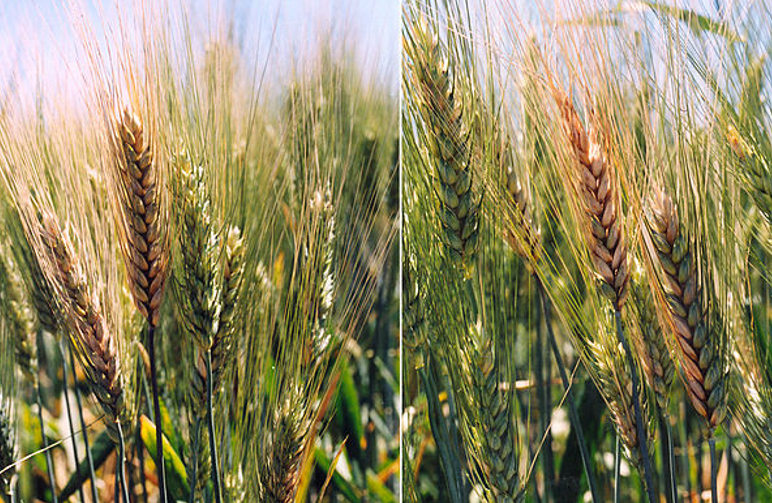An obscure federal commission created by the U.S. Congress issued a report in May suggesting that genetically engineered crops (often referred to as genetically modified organisms or GMOs) could become a new battlefront with China and not in the commercial sense. The U.S.-China Economic and Security Review Commission wrote in a staff research report that “Beijing could easily hack the code or DNA of U.S. GM [genetically modified] seeds and conduct biowarfare by creating some type of blight that could destroy U.S. crops.”
The report said that while GMO crops are designed to resist naturally occurring crop diseases, the Chinese could create a genetically engineered fungus or other disease that targets the type of crops grown widely in the United States.
The writer of the report understands precisely why such an attack might work:
[A] virus or fungus engineered to kill a GM plant could wipe out an entire crop with no genetic variation to mitigate the losses. In a natural crop, a variety of DNA traits in the field could mitigate some losses and ensure some of the plants survive the viral or fungal infection.
What’s not mentioned, of course, is that this could happen anyway if a new naturally occurring fungus or other plant disease arises that is particularly lethal to staple crops such as soybeans, corn, wheat or rice—especially when genetic characteristics are highly uniform as is the case with GMO crops. This isn’t a hypothetical situation. Plant breeders are currently working to create varieties of rice that resist the rice blast fungus that affects not only rice but also millet, wheat, barley, oats.
We have a hint, though, about how to protect ourselves from both an intentional attack and a natural attack. Non-GMO crop varieties have more natural variation in their genetic makeup and are likely to escape widespread destruction because of this variation.
Perhaps an even more important defense would be to move away from monoculture. The opposite of monoculture is polyculture in which a variety of crops are grown on the same land. Monoculture is more efficient since everything is geared toward one crop. But it is also much more vulnerable to serious damage from disease. Polyculture is the traditional way in which farms were planted. Polyculture farms still produce food in the event one or another crop fails.
What is on display in the report cited above is the failure of technologists to understand that they unconsciously make the assumption that new technologies will be benign, that is, those technologies won’t be used for malevolent purposes.
A better way to proceed would be to ask how new technologies might be used to harm people and whether that harm is worth the benefit of the technologies. The response to such a query has often been that we can’t stop progress.
First, every new technology may not constitute “progress.” Second, sometimes that so-called “progress” has the potential to stop our civilization. Chlorofluorocarbons and their destruction of the ozone layer come to mind.
In using the chlorofluorocarbons example I’m demonstrating that some hazards can lead to systemic ruin. The report above provides yet another example of how GMO crops subject all of us to the systemic ruin of the world’s food supply. When the possibility of systemic ruin is inherent in new technologies, their benefits can NEVER justify subjecting the human population to widespread harm and death in exchange for dubious temporary gains.
Photo: Fusarium head blight of barley (2010). CSIRO of Australia. Via Wikimedia Commons https://commons.wikimedia.org/wiki/File:CSIRO_ScienceImage_11243_Fusarium_head_blight_of_barley.jpg






